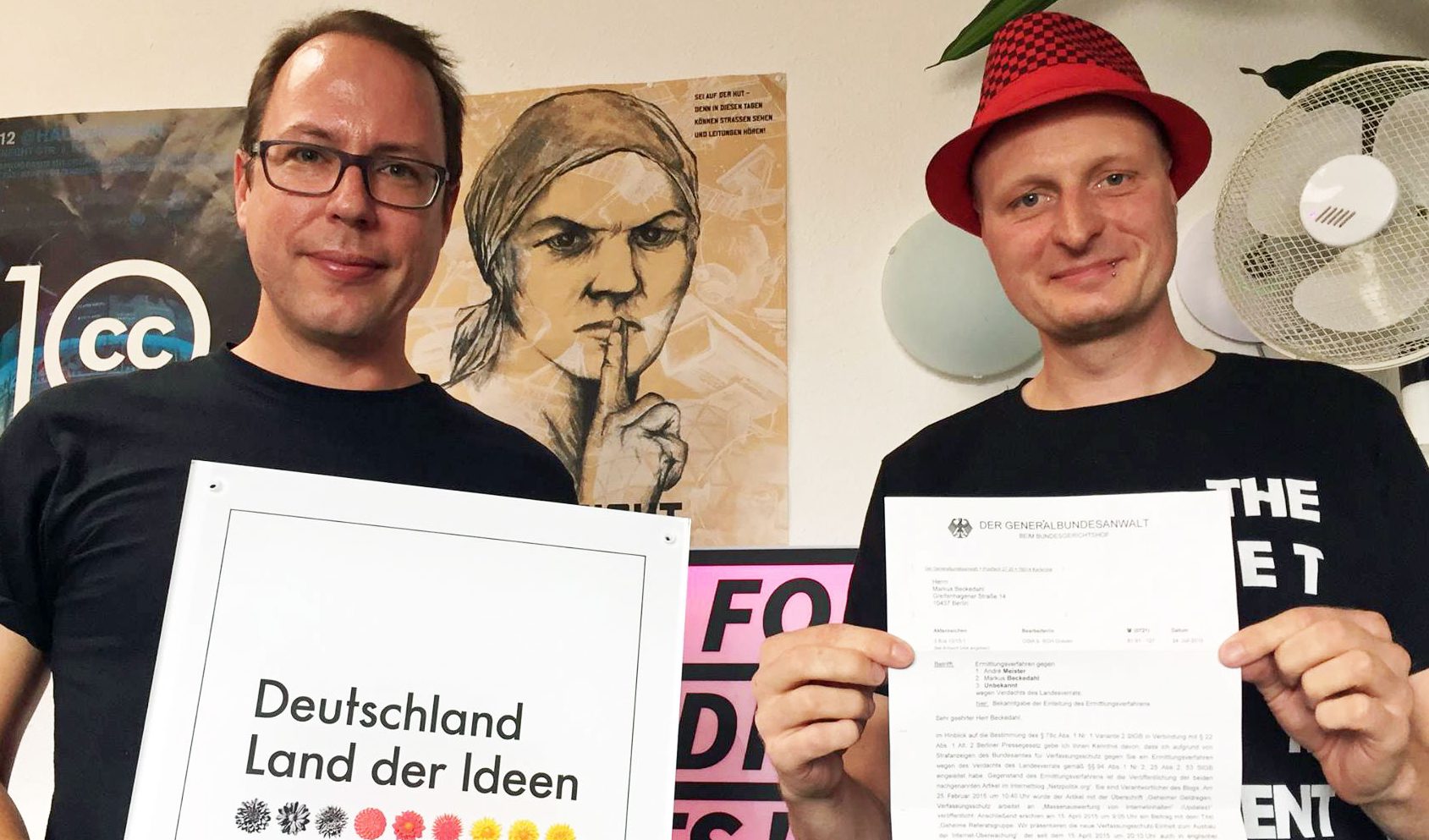UPDATE (8/6/2015): On Tuesday, August 5, the Justice Minister in Germany requested that chief prosecutor Harold Range file for early retirement, allegedly for overreach in the case against Netzpolitik. The case against Netzpolitik is temporarily on hold, but formal charges have not yet been dropped.
Last week, the German Federal Public Prosecutor opened a criminal investigation against Markus Beckedahl, Andre Meister, and an unknown source for treason, following the disclosure of confidential government documents on the Netzpolitik blog, one of the most influential online platforms for digital freedom in Germany.
The investigation was opened after Netzpolitik released documents to the public earlier this year about Germany’s secret plans for launching bulk surveillance programs, including details about a budget for the programs and the creation of a new department within the German secret services to extend surveillance of online communications.
Following widespread protests by the media, citizens, and politicians, the investigation was temporarily paused on Friday by Germany’s prosecutor general, Harald Range. According to information gathered by the German newspaper, “Süddeutsche Zeitung”, and public broadcasters NDR and WDR, officials from the German ministry of Justice are expected to release an analysis this Thursday that could “conclude that the blog reports did not constitute treason”.
Initially, the investigation targeted only Netzpolitik’s unknown source for the documents, for revealing state secrets. But over the past few weeks, Netzpolitik bloggers and activists have been under intense pressure to disclose the identity of the source. Now, while an investigation has been opened, criminal charges against Beckedahl and Meister have not been presented. The last time German journalists were charged with treason — or “landesverrat” in German — was in 1962. Under German law, you can be sentenced for 1-15 years in prison for treason.
We are horrified that our friends at Netzpolitik are being targeted in this way. This investigation threatens not only their personal freedom, but also the freedom of expression of people in Germany and across the EU. Opening a treason investigation of journalists and bloggers, and pressing them to reveal the identity of their sources, will dissuade whistleblowers of all kinds from speaking out, and stop reporters from publishing their stories — even if the information they wish to publish is vitally important for the public to know.
Privacy is not a crime
The documents published by Netzpolitik shed light on Germany’s secret mass surveillance plans. More than two years after the Snowden revelations, and after German officials publicly expressed outrage at the surveillance practices of the US National Security Agency (NSA), the documents reveal that Germany is playing a double spy game.
Over the past few years Germany has been at the forefront of the privacy debate internationally, asserting the need to protect privacy and condemning government surveillance. Notably, Germany joined Brazil in promoting an ambitious UN resolution on the right to privacy, which led to the creation of a newly appointed UN special rapporteur. Yet Germany has secretly been planning to extend bulk surveillance, and now that the plan has been exposed, is attacking whistleblowers. This is an instance of “Do as I say, not as I do.”
Access unequivocally supports Netzpolitik. We condemn the German authorities’ attempt to intimidate whistleblowers and journalists reporting on information that is in the public interest. Germany must stop this double spy game and remember its own commitment to privacy and whistleblower protection, which it has trumpeted so many times on the international stage. Governments have a duty to uphold fundamental rights within their borders at all times, not just when it is politically convenient to do so.
